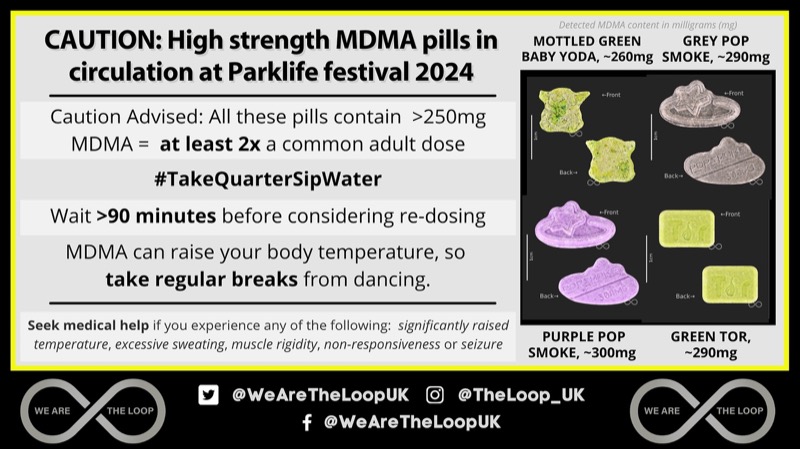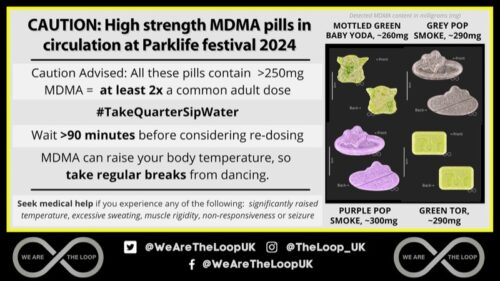Ecstasy pills with higher than average levels of MDMA are currently being sold in the UK, according to drug-testing charity The Loop.
The warning, issued just before the start of Glastonbury Festival and the summer party season, aims to educate festivalgoers and other drug consumers about the potential risks of consuming high-strength ecstasy tablets. The charity has been testing pills at various locations across the UK this year, including at Parklife Festival in Manchester, where pills containing as much as 300mg of MDMA were recorded.
“The Loop has observed from testing over 150 MDMA (ecstasy) products in 2024 that pill strength has returned to pre-pandemic levels,” Adam Waugh of The Loop told leafie.
“We have tested a larger proportion of pills with 250mg+ of MDMA in than we have in any year since the Covid-19 pandemic. These pills are associated with a disproportionate number of MDMA-related hospitalisations and fatalities, as they contain ~3x a common dose.”
The warning has been issued as the average strength of ecstasy pills in the UK dropped at the end of the COVID-19 pandemic. As people have become familiar with lower-strength pills in the last four years they may be unaware that pills this year could contain two or even three times a common adult dose. The risk is heightened for young people, many of whom will have come of age and only started going out and taking ecstasy pills during this post-pandemic period of lower-strength pills.

The Loop also found a correlation in wider European drug-checking data between the weight and size of a pill and its MDMA content. While this isn’t an accurate indicator of strength, festivalgoers are advised to be aware that larger, heavier pills are likely to contain well over 200mg of MDMA, twice the common adult dose.
“If someone is going to take ecstasy, the best harm reduction advice is to take a quarter, and wait at least 90 minutes before redosing. Take regular breaks from dancing, and slowly sip water,” Waugh said.
“If taking drugs at a music festival this summer, visit the welfare or medical tents if you have an unexpected reaction.”
This story first appeared on leafie, view here
Author: Liam O’Dowd


